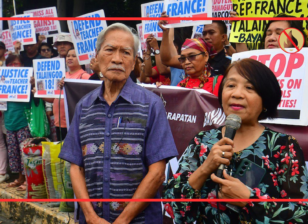Cultural Racism in France: Shedding Light on a Hidden Problem
France is a country renowned for its egalitarian values and liberal ideals, yet cultural racism has long been a smouldering problem hidden beneath the surface. The reality of systemic discrimination and racial prejudice remains inside the fabric of French society, despite the nation’s great history of promoting liberty, equality, and brotherhood. This article explores the various facets of cultural racism in France, illuminating a convoluted and frequently hidden issue with profound effects on the social structure of the nation.
Historical Context
● Legacy of Racism in France
France has struggled with racial tensions since its colonial past, and these issues still exist today. Racial hierarchies have been formed in the nation as a result of the colonial legacy, which has left a lasting mark on the national psyche. This historical context set the stage for the development of cultural racism in modern-day France.
● Emergence of Anti-Racist Activism
In the face of institutional prejudice, a committed group of anti-racist activists has formed to promote equality and social justice. These activists, who have been influenced by international movements like the #GeorgeFloyd and #MeToo movements. It have worked to overthrow ingrained customs and institutional institutions that support cultural racism in France. Interestingly, the Adama Traoré Committee named for the young Frenchman who passed away. While in police custody has led anti-racist protests and called for justice and accountability for those who have been harmed by police.
The Dynamics of Cultural Racism: Unravelling Hidden Transcripts
● Role of Social Networks and Counter-Publics
Social media platforms have become crucial in promoting conversations about cultural racism, allowing marginalised groups to voice their unvoiced complaints and stories. Counter-publics have emerged within these networks, challenging state power structures and narratives by elevating the voices of marginalised individuals in the prevailing discourse.
● Transnational Networks and Black Movements
The spread of ideas beyond national boundaries and the growth of transnational networks have been made easier by the interconnectedness of modern society. Black movements have gathered strength and have transcended national borders to promote unity and coordinated action against cultural racism, thanks to the support of transnational anti-racist causes. For example, the international resonance of the George Floyd movement has sparked reflection and calls for reform inside the French context, acting as a catalyst for transnational anti-racist solidarity.
Unmasking Systemic Discrimination: The Labyrinth of Police Racism and Violence
● Police Brutality and Racial Profiling
Racial profiling and acts of police violence have continued to be problems in working-class neighbourhoods, escalating tensions and creating an environment of distrust. Certain populations have become stigmatised as a result of the employment of racial categories in police procedures, which feeds the cycle of prejudice and estrangement.
● Impunity and State Solidarity
The public’s trust in the state’s legitimacy and law enforcement has been weakened by the climate of impunity surrounding police violence. It reveals a trend of state solidarity where police authority protects offenders from responsibility and punishment. The gap between marginalised communities and authorities has widened due to inefficient complaint resolution procedures.
Reimagining the Path Forward: Towards Equitable and Just Societal Paradigms
● The Imperative of Reform: Decentralised Law Enforcement and Accountability
In addition to stressing the necessity of a decentralised approach to law enforcement and strong systems for guaranteeing police accountability, proponents have acknowledged the critical nature of systemic reform. Programmes designed to encourage community policing and communication between local communities. The law enforcement agencies have demonstrated potential in building trust and lessening the effects of cultural racism.
● Navigating Identity Politics and Promoting Inclusive Policies
Policies that transcend limited ideas of national identity and promote diversity and inclusivity become necessary in the middle of identity politics’ complexity. Destroying the deeply ingrained systems of cultural racism requires cultivating an atmosphere that values cultural diversity and respects everyone’s rights, regardless of race or ethnicity.
Conclusion
Cultural racism in France is still a pressing problem with many facets that calls for a thorough yet nuanced strategy that tackles the structural causes of prejudice. France has the ability to lead the way in the direction of a more just and equitable societal paradigm. It preserves the values of liberty, equality, and fraternity for all of its residents through the implementation of inclusive policies, encouraging communication, and rethinking the methods of law enforcement. The need for unity and group effort is still critical in establishing a more accepting and peaceful future for the country, even as the conversation about cultural racism develops.





